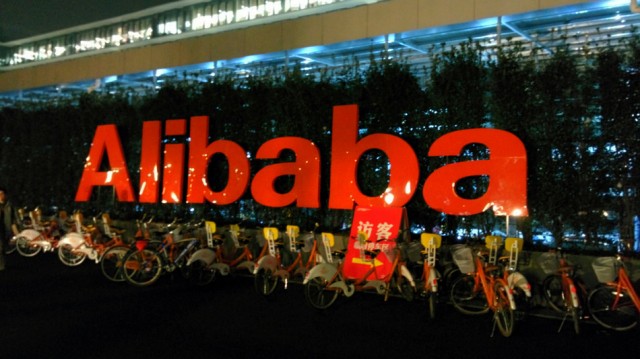We’ve talked about it for several weeks. Or should I say that everyone has talked about it for several weeks? The Alibaba (NYSE:BABA) IPO has finally taken place and its shares began trading just before noon in New York. The pre-IPO speculation is now over, the facts are in, and the post-IPO speculation has begun. What follows is a compendium of facts and a list of “what nexts?” that are being spawned in the wake of the IPO.

The facts
- Thursday’s IPO was priced at $68.00 per share.
- The company now has about 2.5 billion shares outstanding
- The IPO raised $21.8 billion.
- The company’s market cap is currently $226.76 billion.
- Alibaba’s take was more than 30% more than Facebook’s IPO in May 2012.
- BABA shares opened today, its first day of public trading at $92.70 per share.
- More than 100 million shares were traded in the first 10 minutes.
- Yahoo (NASDAQ:YHOO) unloaded 140 million Alibaba shares. It retains 384 million.
- Now into the final minutes of trading, the share price continues to be up by more than 38% at $93.89.
- More than 246 million shares have been traded.
- Pre-offering investor orders at Fidelity Investments and TD Ameritrade exceeded the number handled by the two firms prior to Facebook’s IPO.
- Jack Ma added $865 million to his bank account by selling more than 12.75 million shares.
- The NYSE has indicated that they have “hundreds of thousands of orders,” but very few sellers.
- Underwriters have indicated that they will exercise their option for 48 million more shares.
- Exercising those 48 million additional shares would take the IPO to in the $25 billion range, resulting in the largest IPO in history, surpassing that of the Agricultural Bank of China’s $22.1 billion in 2010.
The “what nexts?”
- How will the Alibaba shares trade over the next six or twelve months? The answer, depending on which way the stock moves, could be frightening to investors or competitors.
- What will Yahoo do with the cash from the sale of those 140 million shares? We’re talking $9.5 billion.
- How will Alibaba spend its new funds?
- Having reduced its stake from 22% to 16%, how does Yahoo plan to continue to participate as a shareholder?
- How will this affect Amazon and eBay?
- To what extent will this effect other relatively unknown, but significant Chinese companies plans to go public?
- Will this be the beginning of Alibaba opening its doors to U.S. customers?
- What will investors do when they fully realize that Alibaba is not run like traditional companies?
These and other questions are likely to continue to pile up as optimists and pessimists present their usual public debates. For now, this is the biggest IPO since, well, since ever.

 Hot Features
Hot Features













